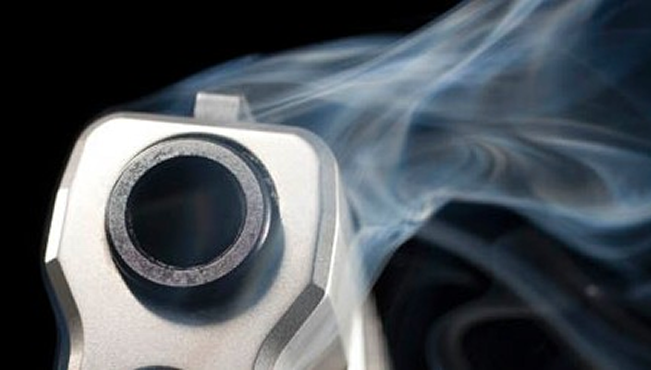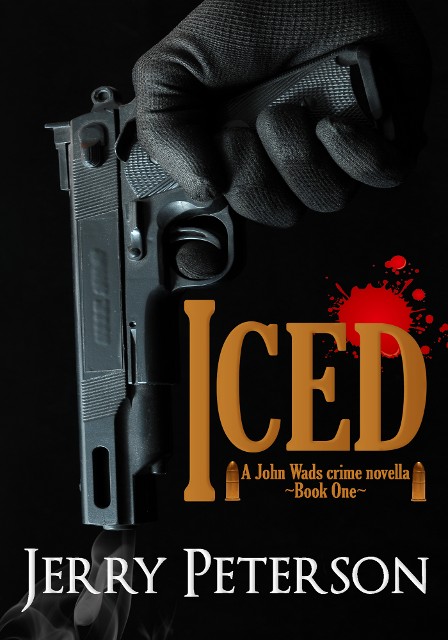It's a thumb novel, yes, it is
Thumb novels were the rage a decade ago. Not here, but in Japan where Japanese teens were writing these sagas by the tens of thousands on the screens of their cellphones, tapping out stories with their thumbs.
Thumb novels, by definition, have short chapters–a page or two–because they are being read on cellphones.
I wondered whether I could write really short, really tight, so I wrote Iced now five years ago and posted it on TextNovel.com where it got a good reception. Here it is, updated to 2013, and you can get it on Amazon both as a real book and an ebook.
Here's the thumbnail of the story: The killing of a former Iraqi interpreter sets his American sponsor on a search for the assassin, a search that threads its way through a torch job of the Iraqi’s house and the murder of the man’s wife, culminating in a race across open water on a snowmobile, a chase up an Interstate highway in a snow storm, and a shoot-out at the state capitol.
So here are the first two chapters.
Chapter 1
John Wadkowski sat at the bar of The Library, his favorite watering place in downtown Jamestown, noodling with his Nokia. On the screen the word magistricide, meaning the killing of a teacher or master. He clicked “adopt,” committing himself to saving the word from the scrap heap of neglect. Wadkowski held the phone’s screen out to the bartender, Barb Larson, a redhead in a black mini-skirt and the tightest of rust sweaters.
She polished a pilsner glass. “Where you gonna use that word?”
“Dunno. Just find it interesting.”
The phone jumped with the University of Wisconsin fight song. Wadkowski clicked off the Save The Words website and the ring tone, read the caller ID, and put the phone to his ear.
“Wads,” came the voice of Howard Zigman, a friend with the Wappello County Sheriff’s Department, “I hate to be the bearer of bad news.”
“I’m sitting down, so go for it.”
“Your Iraqi buddy, Raheem Naseri?”
“What about him?”
“He’s dead.”
“My God, no.”
“Looks like suicide.”
“Where?”
“You’re not going to believe this. Back in the woods on your old farm. . . . Wads?”
“I’ll come out.”
Wadkowski clicked off the call and slipped the cell in his pocket. He pointed to the bottle he had been nursing as he pushed off his stool. “Am I good for that?”
“Two bucks seventy, I guess. I don’t know why you drink that stuff. Nobody else does.”
“Muscle Milk. It’s the old dairyman in me, and, hey, bodybuilders love it.”
He shagged on outside where the cold of February slapped him, the afternoon shadows stretched long. At the curb, with still a half-hour on the parking meter, stood the one thing he had come away from his farm sale with free and clear, his Chevy Silverado dually with the biggest diesel engine the company made. He’d bought the truck when milk hit twenty dollars a hundredweight. It had tumbled to half that when the economy went to hell. And his debt–his advisor at the Farm Credit agency said sell out and go do something else.
He did and took an efficiency in town, but there was nothing else to do. The city police, the sheriff’s department, the state police all had hiring freezes, and he had, as a former military police investigator, the credentials for anything they might have. All he could get was assistant manager/night shift at the Main and Bypass Kwik Trip.
Wadkowski fired the engine. He drove out of town, west toward the farm and fields of bad memories. He opened his cell, pressed “contacts,” and scrolled down to Raheem Naseri–his home phone number. He pressed “send.” Shatha should be there, but no answer.
He scrolled to the nursery school where she worked and again pressed “send.” On the third ring: “Cradles to Crayons. Debbie here.”
“Debbie, this is Wads. Shatha there?”
“She didn’t come in today.”
Chapter 2
He saw them from the top of the rise on the county road, the pulsing emergency lights of a flock of patrol cars and the rhythmic red of an ambulance.
Wadkowski drove on. As he got closer, he decided the best place to leave his truck was the ditch, so he pulled off and parked behind a state police cruiser. He rescued his parka from the passenger seat and walked into a patch of shagbark hickories. A deputy, dragging on a cigarette and with the collar of his winter jacket up around his ears, stopped Wadkowski.
“Let him on,” a man further into the woods called out.
Wadkowski stuffed his hands in his pockets and rambled on. “A few more uniforms and you could hold a convention,” he said when he came up beside a plainclothes man hunched against the cold–Howard Zigman, a sheriff’s detective.
“We do turn ’em out for shootings.” Zigman thumbed at the trooper standing nearby. “Know this man?”
Wadkowski stuck out his hand. “John Wadkowski. Most people call me Wads.”
“Sam Dixon,” the trooper said, a tall man, spade black, neck thickly muscled. “Just transferred to this district.”
“You’ll do well here. So who found him?”
“Your neighbor, Marty Walton,” Zigman said. “Marty was driving by and saw the car in the woods and knew that wasn’t right. He walked in, saw the mess, and called Nine-One-One. Naseri’s on the other side of the car.”
The car–an old Kia, small and cheap. Wadkowski’s church bought it after Wads told them the new family needed help, a family he had sponsored. He had known Naseri in Iraq. The man had been an interpreter for Wads’ unit, and when he finally got visas for himself, his wife, and their little girl . . .
Zigman and Dixon led Wads around to where a technician in sheriff’s department coveralls and plastic gloves was swabbing for something–the tech, a woman Wads didn’t know.
Naseri, on the ground, laid back against the driver’s door, his head to the side, a small hole apparent in the right temple but little blood. A pistol to the side of the body.
Zigman motioned at the gun. “Your classic Saturday night special. Know he had it?”
“Yeah. I couldn’t talk him out of it. He said people hassled him when they learned he was a Muslim. I told him if he’d just go by Ray–Ray Naseri, not insist on Raheem Naseri–nobody’d be the wiser.”
“There’s no understanding prejudices. Didn’t he attend your church?”
“He did for me, yes, but his spiritual home is–I’m sorry, was–the As-Sunnah mosque in Madison. Any chance this could be murder?”
“Wads, I don’t see it. Sam and I’ve walked the area. No signs that there’s been anyone else here. But with the ground dry and frozen . . .”
The technician, kneeling beside the body, held up a pad to Zigman. “I’ve got gunshot residue on his right hand.”
Zigman turned to Wads. “That cinches it, wouldn’t you say?”
“I got a problem. Raheem was left-handed.”

